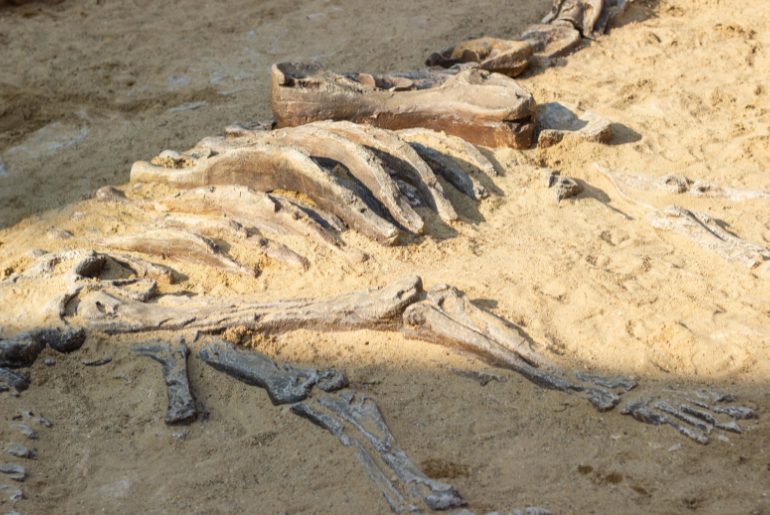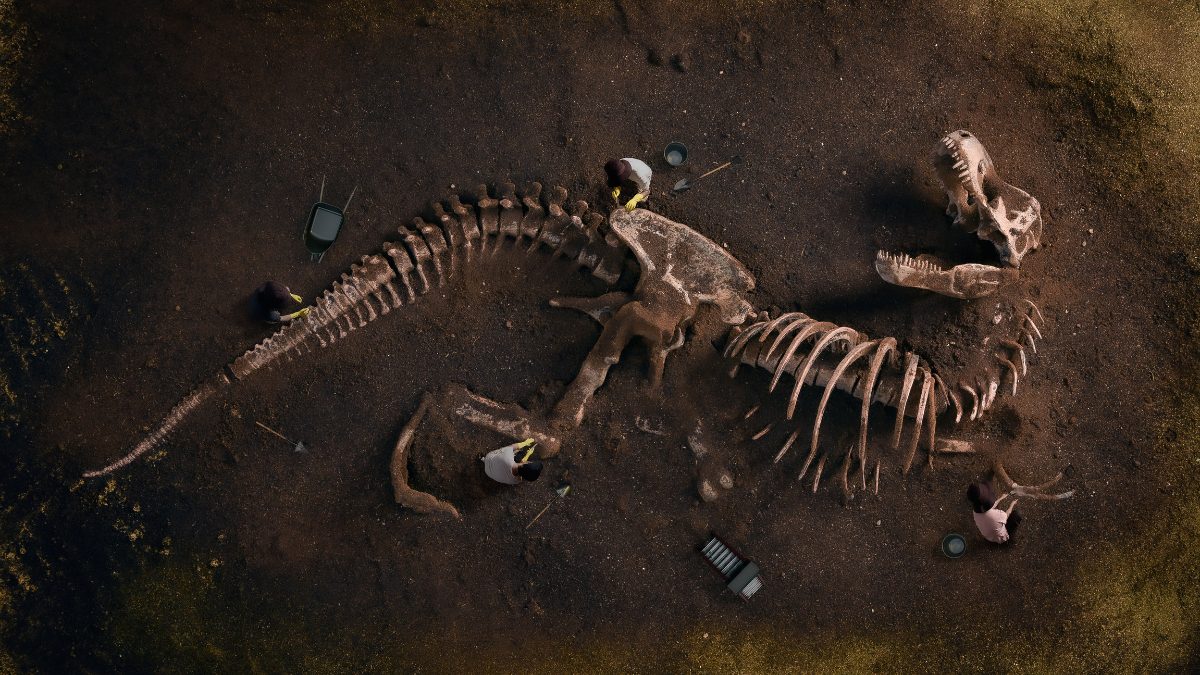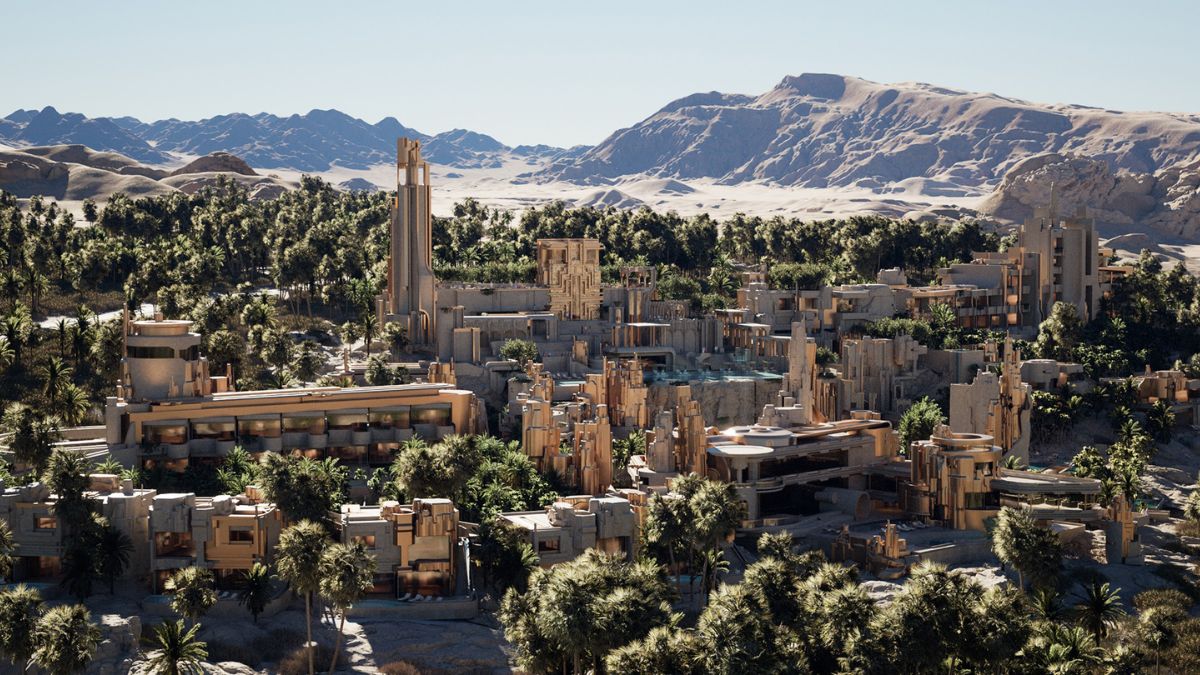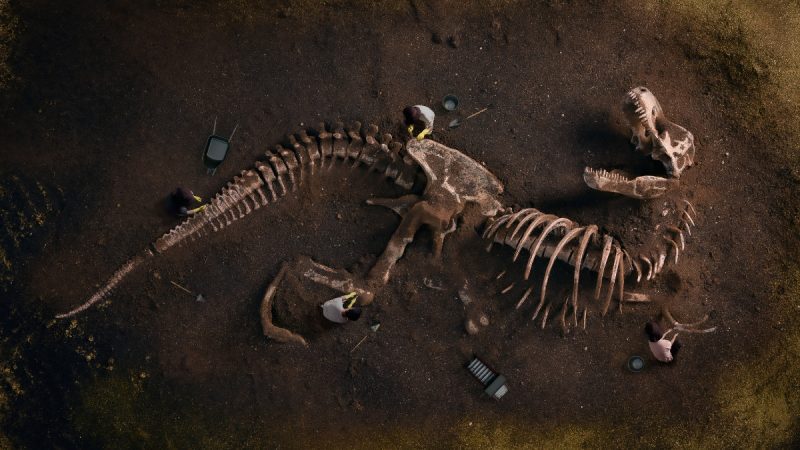The Palaeontology Division of the Geological Survey of India (GSI), located in the North Eastern Region of Shillong, is buzzing with excitement following a significant discovery: dinosaur teeth found in the South West Khasi Hills in Meghalaya. The discovery was initially made on January 8, 2024, but was only announced recently due to procedural necessities, as explained by Bashisha Iangrai, a senior geologist with a fervent passion for similar findings alongside her team.
Dinosaur Teeth Discovered In Meghalaya

These teeth, carefully measured using a scale, belong to Titanosaurian sauropods. These were the majestic, long-necked dinosaurs that once roamed the Earth before going extinct around 65 million years ago. The presence of these fossils in the South-West Khasi Hills suggests that this region was also affected by the asteroid impact, as per the Meghalaya Monitor reports.
The Upper Cretaceous Maastrichtian age spans from roughly 72.1 million to 66 million years ago. During that period, the two Titanosaurian sauropod teeth were found in the sandstone of the Mahadek Formation.
Similar teeth from the Titanosaurus have been discovered in Australia, Argentina, Morocco, Uzbekistan, and Morocco, among other places in the world. Titanosaurian sauropod finds from various formations in Gujarat, Madhya Pradesh, Maharashtra, and Tamil Nadu have also been documented in the past.
Geological Survey Of India Strikes Gold

The recent finding in Meghalaya broadens our knowledge of the range and diversity of titanosaurian sauropods. It also fills a crucial gap in India’s Late Cretaceous stratigraphical record. Partially complete vertebrate bone fossils have been found in the Khasi Hills before, dating back to 1977. Later, they were confirmed to be dinosaur bones.
Fragmentary and disarticulated dinosaur bones were discovered in 2006–2007 and 2019–2021, respectively. It contained a partially preserved limb bone similar to those described from other parts of India by Titanosaurids.
However, what makes this discovery truly remarkable is that it marks the first-ever report of dinosaurian teeth fossils in the northeastern part of India. The teeth, although poorly preserved, exhibit characteristics typical of Titanosaurian sauropods, such as their size, shape, and tooth morphology.
According to the Meghalaya Monitor, both teeth show distinct features. One smaller tooth, measuring 16 mm long, has a chocolate-brown crown and an off-white base. The larger tooth, measuring 23 mm long, has a yellowish hue and a distinct crown-root transition. These specimens, despite their differences, share similarities with Titanosaurid sauropods found in other parts of the world.
Overall, discovering dinosaur teeth in the South West Khasi Hills significantly contributes to paleontological research.
Cover Image Courtesy: Canva
For more such snackable content, interesting discoveries and the latest updates on food, travel and experiences in your city, download the Curly Tales App. Download HERE.




